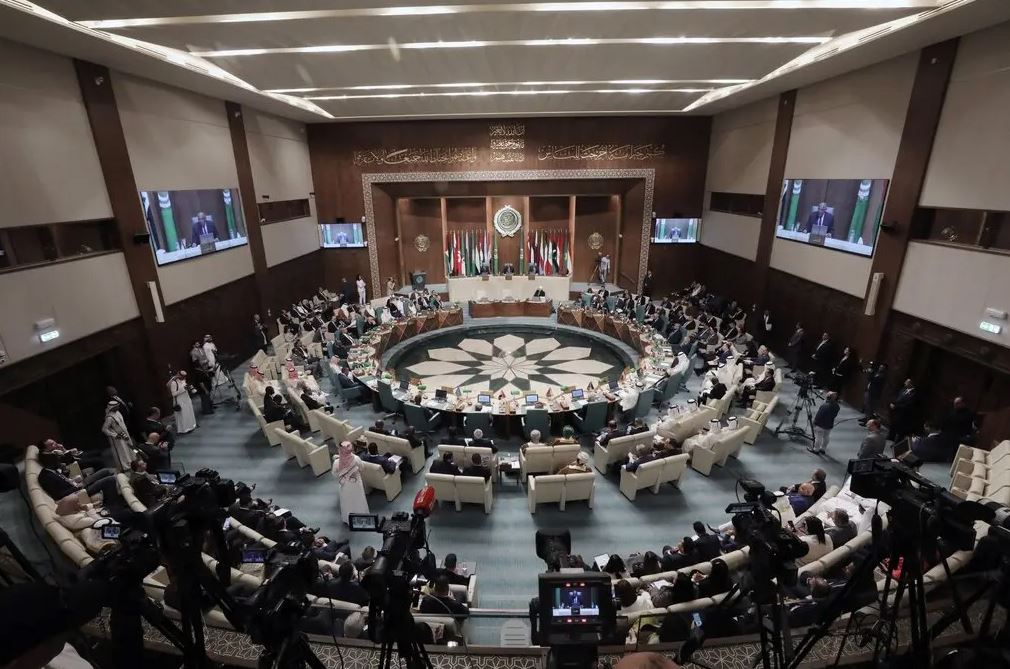More than a decade after it was suspended from the league for its use of merciless force against its own people, Arab states decided on Sunday to enable Syria to rejoin the Arab League.
It was a major condemnation of a government that had bombed, gassed, and tortured protesters and others in a conflict that had spread to a long civil war that Syria’s neighbours and peers expelled it from the 22-member league in November 2011.
Now, the region is working to restore ties, having come to the conclusion that Arab nations would be better off if they did not follow the United States’ advice and isolate Syria. Proponents of engagement claim that avoiding contact with Syria is equivalent to accepting the fact that the Syrian government has won the conflict.
This means that President Bashar al-Assad, the Syrian leader who has been accused of perpetrating war crimes against his own people over the last decade, may represent Syria at the upcoming Arab League meeting this month in Saudi Arabia. Restoring stability to Syria’s economy might bring in billions of dollars for rebuilding projects and other investments, providing more support for Mr. al-Assad.
Despite 12 years of civil conflict, Mr. al-Assad remains in power in Syria but is widely reviled abroad, and the conditions that led to Syria’s suspension have not improved.
The United Nations estimates that over 14 million Syrians have left their homes inside Syria or to neighbouring countries and abroad since the violence began.
For the last decade, most of Syria’s Arab neighbours have avoided interacting with the regime out of revulsion for Mr. al-Assad’s conduct and in response to pressure from the United States. Some of them publicly backed the rebels trying to overthrow Mr. al-Assad, while others still refuse to warm up to him.
However, the regional balance of power has changed. Mr. al-Assad’s longevity has been apparent for some time now, with the Damascus regime having recaptured the majority of the nation from opposition troops.
The Syrian government has produced and sold Captagon, an illegal, addictive drug, as sanctions have bit and its economy has cratered, and its neighbours are eager to work with it to send refugees back home, particularly Lebanon and Jordan.
After providing fighters and other assistance to help Mr. al-Assad cling to power in Syria, Iran has a significant presence there, and the key Middle Eastern power brokers, Saudi Arabia and the United Arab Emirates, were searching for a new strategy to deal with Iran. After realising that regional isolation had merely pushed Syria into Iran’s arms, the monarchies of the Persian Gulf have decided to reach out to Mr. al-Assad in the hopes of weaning him off of Iran.
When the Emirates established diplomatic ties with Damascus in 2018, it was a portent of things to come. However, after a huge earthquake in February killed over 8,000 people in northern Syria, opening the way for Arab nations to reach out, the slow-burn campaign to reestablish diplomatic and economic ties with Mr. al-Assad has gained steam.
Egypt sent its foreign minister to meet with Mr. al-Assad in Damascus, and soon planeloads of relief from Syria’s Arab brothers began arriving in quake-affected regions. By mid-April, diplomatic connections between Tunisia and Syria had been restored, and the foreign minister of Syria had been invited to Jeddah by Saudi Arabia.
The Saudi-Syrian relationship, which had been frozen for years, has made rapid progress in recent months as Saudi Arabia has used its regional power to push other Arab nations towards normalisation. Diplomats said it looked to be the key actor pushing for a quick recovery in Syria ahead of the Arab League meeting in Jeddah on May 19. However, Oman and the United Arab Emirates have been urging the same for years.
Despite loud protests from the United States, which placed harsh sanctions on Syria following the start of its civil war and has shown little intention to release them in order to isolate Syria over its government’s cruelty, the Arab world rushed to welcome Damascus back into the fold. But U.S. attempts to replace Mr. al-Assad’s regime with one that includes all of its citizens have failed, putting U.S. officials on the sidelines.
Secretary of State Antony J. Blinken tweeted on Friday, two days before the Arab League conference, that the United States remained opposed to normalisation with Syria. “The only viable solution to ending the conflict,” he added, was for Mr. al-Assad to be peacefully replaced by elections.
U.S. officials have acknowledged that they are unable to prevent Arab allies from mending relations, but they have pushed them to attempt to get some kind of concession from Mr. al-Assad in exchange. This might take the form of a promise to ensure the safe return of Syrian refugees, a crackdown on the Captagon trade, or a reduction in Iran’s military involvement in Syria. Assistant Secretary General Hossam Zaki said on Sunday that the Arab League has established a committee to examine these issues.
There is still time for more restrictions to be placed on the reestablishment of diplomatic ties between Syria and several Arab League nations. Among them is Egypt, a traditional Arab powerhouse that has been less quick to embrace Mr. al-Assad than its Gulf friends.

